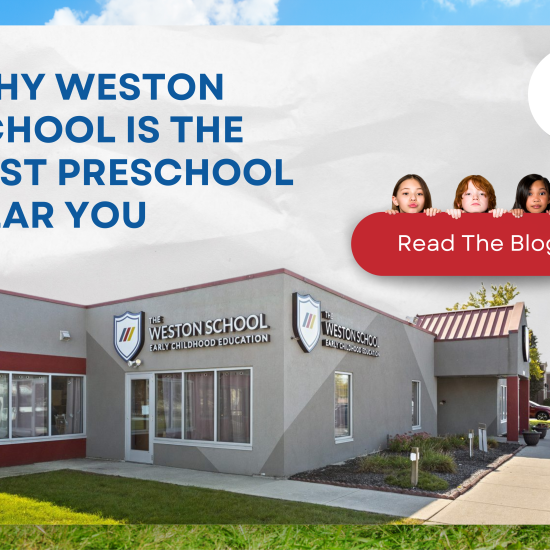The Importance Of Toddler Preschool Activities For Early Education
At preschool, your toddler is opening up their world, developing special friendships, learning words, and forming ideas. These are very important in shaping the intellectual, physical, social, and emotional development of a child. Purposeful play and nurturing guidance from teachers promote toddlers to think critically, solve problems, and communicate effectively.
Why Are Toddler Preschool Activities Essential?
Toddler preschool activities provide nurturing and balanced learning experiences, helping your toddlers learn to think in bigger ways as they build active minds and healthy bodies. Learning begins from the very first day a child begins preschool. Equal emphasis is given to academics and extracurricular activities to help the overall development of a child.
The basic facilities provided by toddler preschools include a clean and hygienic environment, well-qualified and supportive teachers, child-friendly classrooms, blackboards, outdoor play areas, and many more. In addition, they have a variety of toys, games, and books. We have a designated time for study and more time to play and explore. Activities for preschool children are designed to be fun as they learn important academic skills through play.
Importance of Toddler Preschool Activities
1. Promotes Social Development
A preschool provides an opportunity for children to interact with one another during group time, storytime, and sitting down for a meal. It helps children come together as a community and develop important social skills that help foster active minds and happy hearts. Through play and group activities, children learn empathy, respect,
and emotional regulation, which are crucial for building healthy relationships. They learn to share, cooperate, communicate, and resolve conflicts in a teacher-guided supportive environment.
2. Build Creativity and Imagination
Preschool activities that involve arts and crafts, storytelling, and imaginative play are helpful in building a toddler’s creativity and imagination. Engaging in creative activities encourages children to think outside the box, explore different areas, and express themselves, contributing to their growth.
3. Enhances Language and Communication Skills
Every day is a great day to explore new subjects, develop lasting skills, and have fun.At preschool, children engage in healthy conversations, storytelling, reciting, and vocabulary-building activities. These help enhance their language and communication skills, including listening, speaking, and comprehension.
4. An Introduction to Motor skills
Engaging children in activities such as buttoning up a shirt, holding a pencil, picking up food, and rolling playdough helps children develop fine motor skills. These skills involve holding, grasping, gripping, and pinching, engaging small muscles in the hands and fingers, eventually helping them to write. Challenging brain skills and physical coordination are very important for a child’s development.
Children are challenged to develop coordination between the brain and body through projects such as threading beads, drawing, or cutting with scissors(safely). These activities help them explore various exciting skills and remain actively engaged.
5. Cognitive Development
Preschool activities are designed to improve toddlers’ cognitive skills through interactive games, puzzles ,and building tasks that challenge their thinking. Helping a young child’s cognitive development involves encouraging them to think, explore, and figure things out. This also enhances their problem-solving skills and knowledge acquisition. Cognitive skill development will benefit your child not only in the classroom but also outside of class.
How Can Parents Assist Kids with Preschool Activities?
Creating a home schedule for preschool activities, keeping the child organized, and encouraging them, especially if they express a preference for one activity over another, makes children more determined to engage in activities.
Here’s how to accomplish it:
A Fixed Routine: Establishing a routine for children is one of the most important aspects of parenting. Predictability is comforting to children. In addition to helping with memory development, routines help children grow into well-behaved adults who can enforce rules even at home. Children may pick up complex tasks in a simple way and learn about steps, sequence, and order.
Check-in with Teachers: Parents can discuss areas of concern where their child’s development is lacking with their child’s teachers at biweekly or monthly sessions. If there are any gaps in the learning process, parents’ warmth and love might help fill them at home.
Talk To Your Child: Talk to your child about their participation in school activities. Children grow their vocabulary and gain confidence using new terms and expressions by narrating the same. The preschool level is the ideal age to start expanding their vocabulary and expressive abilities, which will continue to increase throughout their academic careers.
Toddler preschool activities are important to improve the cognitive, physical, social, and emotional well-being of children. Through play children learn skills they need.
A child’s early growth benefits greatly from participation in preschool activities. It is extremely important to mold a kid’s intellectual, physical, social, and emotional development. Activities at preschool, such as games, hands-on learning, creativity, and being outdoors, encourage children to think critically, solve problems, and communicate effectively.
Weston School is among the most renowned schools in Indiana. The school focuses on a child’s holistic development from a very early age. We have designed separate programs for kids of all ages, such as the toddler program, kindergarten program, summer camps, before- and after-school care. Each program caters to specific age groups and developmental needs. The school teachers are also trained to provide the children with the same comfort they find at home.
To get more details about Weston School and its preschool activities, visit the website.
FAQs
1. How can I determine if my toddler is ready for preschool, and at what age should they start?
Answer: Most toddlers between the ages of 2 and 4 are prepared for preschool. However, the preparation varies significantly based on individual development and temperament. A toddler may be prepared for preschool if they can follow basic instructions, demonstrate an interest in connecting with other kids, handle brief periods of time without their parents or caregivers and verbally communicate their needs.
2. What should my toddler’s preschool program include?
Answer: To make sure the preschool program a toddler attends fits their needs, take into account a number of important parameters:
- Seek a program that offers a curriculum that is adapted to the developmental phases of the child, together with a supportive setting that recognizes play as an integral element of learning.
- The teacher-to-child ratio is essential to ensure that a toddler gets enough care and encouragement.
- Electing a program that promotes parent participation and provides frequent updates on the child’s development is also advantageous.
- Finally, take into account how the school handles discipline and how well it fits with the parenting style to give children a consistent experience.




